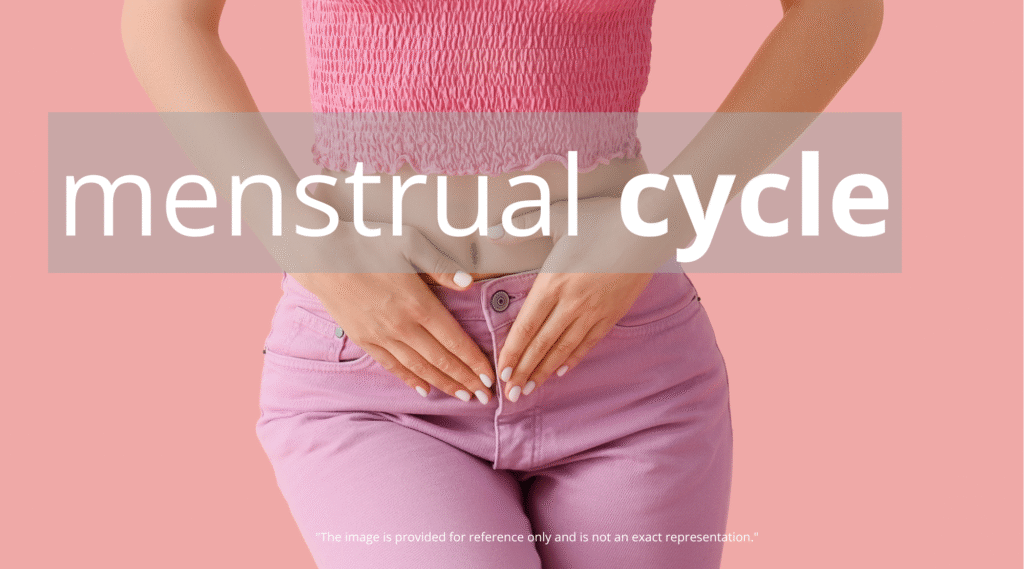Feeling like your skin is suddenly drier, or your hair is thinning? You’re not alone. Many women experience significant changes in their bodies during perimenopause, the transitional period leading up to menopause. These changes, often impacting hair and skin, can be both frustrating and confusing. This article explores the science behind these shifts and provides practical strategies to navigate the challenges of perimenopause skin changes and hair health. We’ll delve into hormonal fluctuations, effective skincare routines, and lifestyle adjustments that can help you feel your best during this natural transition.
Understanding Perimenopause and Its Impact
Perimenopause marks a significant transition in a woman’s life, characterized by fluctuating hormone levels, primarily estrogen and progesterone. This hormonal rollercoaster can trigger a cascade of physical and emotional changes. These changes are very common and natural.
The decline in estrogen, in particular, plays a crucial role in perimenopause skin changes. Estrogen contributes to skin hydration, collagen production, and overall skin elasticity. As estrogen levels decrease, the skin tends to become drier, thinner, and more prone to wrinkles.
Similarly, hair health is also closely linked to hormonal balance. Estrogen helps to keep hair in the growth phase, contributing to thicker, fuller hair. As estrogen declines, hair follicles may shrink, leading to hair thinning and increased shedding. (External Link: National Institute on Aging: https://www.nia.nih.gov/health/menopause/what-menopause).
Common Skin Changes During Perimenopause
Several skin changes are commonly associated with perimenopause. Dryness is a frequent complaint as the skin loses its ability to retain moisture. This can manifest as flaky patches, increased sensitivity, and a general feeling of tightness.
Increased wrinkles and fine lines are another visible sign of aging skin during this time. The loss of collagen, a protein that provides structural support to the skin, contributes to this. You might also notice that existing wrinkles become more pronounced.
Some women also experience increased skin sensitivity during perimenopause. The skin’s protective barrier becomes weaker, making it more vulnerable to irritation from harsh soaps, fragrances, and other environmental factors. Redness, itching, and inflammation may become more common.
Finally, hormonal fluctuations can trigger acne breakouts in some women, even if they haven’t experienced acne since their teenage years. These breakouts can be frustrating and require targeted skincare to manage.
Addressing Dry Skin: Hydration is Key
Combating dry skin during perimenopause requires a multi-faceted approach, with hydration being the cornerstone. This means both hydrating from the inside out and using effective topical moisturizers.
Drink plenty of water throughout the day to keep your body well-hydrated. Aim for at least eight glasses of water per day. Incorporate hydrating foods like cucumbers, watermelon, and berries into your diet.
Choose a moisturizer that is specifically formulated for dry or sensitive skin. Look for ingredients like hyaluronic acid, glycerin, and ceramides, which help to attract and retain moisture. Apply moisturizer immediately after showering or bathing to lock in hydration.
Avoid harsh soaps and cleansers that can strip the skin of its natural oils. Opt for gentle, fragrance-free cleansers that are designed to nourish the skin. Consider using a humidifier, especially during the dry winter months, to add moisture to the air.
Minimizing Wrinkles and Fine Lines
While wrinkles are a natural part of aging, there are steps you can take to minimize their appearance during perimenopause. Protecting your skin from sun damage is paramount. Use a broad-spectrum sunscreen with an SPF of 30 or higher every day, even on cloudy days.
Retinoids, derived from vitamin A, can help to stimulate collagen production and reduce the appearance of wrinkles. Start with a low concentration and gradually increase as tolerated to avoid irritation.
Consider incorporating products containing peptides and antioxidants into your skincare routine. Peptides can help to stimulate collagen production, while antioxidants protect the skin from free radical damage.
Professional treatments like chemical peels, microdermabrasion, and laser resurfacing can also help to improve skin texture and reduce wrinkles. Consult with a dermatologist to determine the best treatment option for your skin type and concerns. You can also check out Flat Stomach Secrets: Inspired by Brigitte Macron’s Fitness: https://befullbehealth.com/2025/flat-stomach-secrets-inspired-by-brigitte-macrons-fitness/.
Managing Skin Sensitivity and Irritation
If you’re experiencing increased skin sensitivity during perimenopause, it’s important to simplify your skincare routine and avoid potential irritants. Choose fragrance-free and hypoallergenic products that are less likely to trigger allergic reactions.
Patch test new products on a small area of skin before applying them to your entire face. This will help to identify any potential sensitivities. Avoid harsh exfoliants, such as scrubs and abrasive cleansers, which can further irritate sensitive skin.
Use gentle, lukewarm water to cleanse your face. Avoid hot water, which can strip the skin of its natural oils. Consider using a soothing serum or cream containing ingredients like aloe vera, chamomile, or calendula to calm irritated skin.
If you’re experiencing persistent redness, itching, or inflammation, consult with a dermatologist to rule out any underlying skin conditions. They can recommend prescription-strength treatments or other strategies to manage your skin sensitivity.
Hair Health During Perimenopause
Hair thinning and hair loss are common concerns during perimenopause. As mentioned, the decline in estrogen levels can impact hair follicle health, leading to these changes.
Maintain a healthy diet that is rich in protein, iron, and other essential nutrients. These nutrients are vital for hair growth and overall hair health. Address any underlying nutrient deficiencies with the help of a healthcare professional. Check out this article on Protein Needs: How Much Do You Really Need Per Day?: https://befullbehealth.com/2025/protein-needs-how-much-do-you-really-need-per-day/.
Use gentle shampoos and conditioners that are free of sulfates and other harsh chemicals. These chemicals can strip the hair of its natural oils, making it dry and brittle. Avoid over-styling your hair with heat tools like curling irons and straighteners. Excessive heat can damage the hair shaft, leading to breakage and thinning.
Consider using hair growth products containing ingredients like minoxidil or biotin. Minoxidil is a topical medication that can help to stimulate hair growth, while biotin is a vitamin that is essential for hair health. Consult with a dermatologist to determine the best hair growth treatment for your specific needs. (External Link: Mayo Clinic – Hair Loss: https://www.mayoclinic.org/diseases-conditions/hair-loss/diagnosis-treatment/drc-20372932)
Lifestyle Adjustments for Healthy Skin and Hair
In addition to targeted skincare and hair care, certain lifestyle adjustments can also contribute to healthy skin and hair during perimenopause. Manage stress through relaxation techniques like yoga, meditation, or deep breathing exercises. Stress can exacerbate hormonal imbalances and contribute to skin problems and hair loss.
Get enough sleep each night to allow your body to repair and regenerate. Aim for at least seven to eight hours of sleep per night. Maintain a healthy weight through diet and exercise. Obesity can contribute to hormonal imbalances and other health problems that can affect skin and hair.
Avoid smoking and excessive alcohol consumption, as these habits can damage the skin and contribute to premature aging. Consider hormone replacement therapy (HRT) to replenish declining estrogen levels. HRT can help to alleviate many of the symptoms of perimenopause, including skin and hair changes. Discuss the risks and benefits of HRT with your doctor.
Embracing the Change: A Holistic Approach
Perimenopause is a natural transition that affects every woman differently. While perimenopause skin changes and hair health can be challenging, understanding the underlying causes and implementing effective strategies can help you navigate this phase with confidence.
Focus on nourishing your body from the inside out through a healthy diet, adequate hydration, and stress management. Simplify your skincare and hair care routines, opting for gentle and effective products. Consult with healthcare professionals like dermatologists and endocrinologists to address any specific concerns or explore treatment options.
Embrace the changes that come with perimenopause and focus on maintaining a healthy and balanced lifestyle. Remember that you are not alone, and there are many resources available to support you during this transition. By taking a proactive and holistic approach, you can maintain healthy skin and hair and feel your best during perimenopause and beyond.












Post Comment